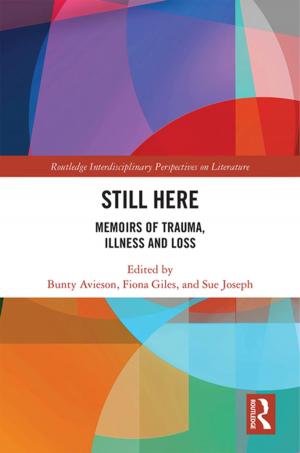| Author: | Lisa Hughes | ISBN: | 9781370697717 |
| Publisher: | Lisa Hughes | Publication: | April 11, 2017 |
| Imprint: | Smashwords Edition | Language: | English |
| Author: | Lisa Hughes |
| ISBN: | 9781370697717 |
| Publisher: | Lisa Hughes |
| Publication: | April 11, 2017 |
| Imprint: | Smashwords Edition |
| Language: | English |
When Mom became ill, I helped Dad care for her. A few days after she passed, my paternal grandmother, dead before my birth, visited me in a dream. She sat beside me on my bed smiling and whispered, “Take care of my son.” What she didn’t say was how hard a task she’d given me.
Dad and I grieved Mom’s death together. We comforted each other. Sharing the grief helped to ease the pain and loneliness. For six years I checked in with Dad and visited on him regularly.
Then Dad moved in with my husband and me. That’s when I began to see his world in a new way. Within months of moving in, he was diagnosed with Alzheimer's dementia. That’s when I learned to be a caregiver. Being responsible for another person’s life was new to me--lots of information and responsibility with very little expertise or skill. I often relied on the kindness of strangers--doctors, nurses, social workers--whom I counted as blessings in a most chaotic world.
One morning I spent three hours at Panera Bread with a counselor from the Alzheimer’s Association. In fierce denial, I rejected the facts and evidence of dementia. I told myself that Dad was just himself at his worst. She said, “A person might have a personality disorder before dementia sets in, but after it sets in they can’t help their behavior, they have no control.”
“It’s the disease,” became one of my mantras. It helped a little.
I did my best for the last five years of Dad’s life as his primary caregiver through Alzheimer’s disease and other illnesses. First in my home, then in Alzheimer’s assisted living. While there, he had two dementia-related hospitalizations, after which he moved into a group home for seniors with dementia.
During the final nine months of his life, Dad and I relied on multidisciplinary care teams for his survival: doctors, nurses, aides, physical and occupational therapists, and social workers. An intake team assessed him to bring him into an Assisted Living facility for the appropriate level of care. Before the hospitalizations, aides worked together with nurses to provide services and oversight identifying his changing condition and the need for advanced healthcare intervention. While in the hospital, a team of all of the above cared for him. They likewise observed and evaluated his progress. Then ensured that he would return to the appropriate type of facility with the right level of care. Recreational therapists worked to keep him engaged in life and to retain his failing faculties. I am grateful for the care, skill, and dedication these wonderful people showed to Dad and our family. Today I also support my husband’s care for his family, and I care for friends and neighbors as they age.
These essays, stories, rants, and prayers come from my daily diary entries during my final years with Dad, along with memories of Mom and other experiences of elder care giving by friends, family, and neighbors. Most of what’s written here is true, some exaggerated truth and some a bit fiction.
Keep an open heart as you journey with Ernest and Eartha Rose through the tough times--confusion, resistance, and pain--of caregiving, along with the good times, moments of love, joy, and peace.
When Mom became ill, I helped Dad care for her. A few days after she passed, my paternal grandmother, dead before my birth, visited me in a dream. She sat beside me on my bed smiling and whispered, “Take care of my son.” What she didn’t say was how hard a task she’d given me.
Dad and I grieved Mom’s death together. We comforted each other. Sharing the grief helped to ease the pain and loneliness. For six years I checked in with Dad and visited on him regularly.
Then Dad moved in with my husband and me. That’s when I began to see his world in a new way. Within months of moving in, he was diagnosed with Alzheimer's dementia. That’s when I learned to be a caregiver. Being responsible for another person’s life was new to me--lots of information and responsibility with very little expertise or skill. I often relied on the kindness of strangers--doctors, nurses, social workers--whom I counted as blessings in a most chaotic world.
One morning I spent three hours at Panera Bread with a counselor from the Alzheimer’s Association. In fierce denial, I rejected the facts and evidence of dementia. I told myself that Dad was just himself at his worst. She said, “A person might have a personality disorder before dementia sets in, but after it sets in they can’t help their behavior, they have no control.”
“It’s the disease,” became one of my mantras. It helped a little.
I did my best for the last five years of Dad’s life as his primary caregiver through Alzheimer’s disease and other illnesses. First in my home, then in Alzheimer’s assisted living. While there, he had two dementia-related hospitalizations, after which he moved into a group home for seniors with dementia.
During the final nine months of his life, Dad and I relied on multidisciplinary care teams for his survival: doctors, nurses, aides, physical and occupational therapists, and social workers. An intake team assessed him to bring him into an Assisted Living facility for the appropriate level of care. Before the hospitalizations, aides worked together with nurses to provide services and oversight identifying his changing condition and the need for advanced healthcare intervention. While in the hospital, a team of all of the above cared for him. They likewise observed and evaluated his progress. Then ensured that he would return to the appropriate type of facility with the right level of care. Recreational therapists worked to keep him engaged in life and to retain his failing faculties. I am grateful for the care, skill, and dedication these wonderful people showed to Dad and our family. Today I also support my husband’s care for his family, and I care for friends and neighbors as they age.
These essays, stories, rants, and prayers come from my daily diary entries during my final years with Dad, along with memories of Mom and other experiences of elder care giving by friends, family, and neighbors. Most of what’s written here is true, some exaggerated truth and some a bit fiction.
Keep an open heart as you journey with Ernest and Eartha Rose through the tough times--confusion, resistance, and pain--of caregiving, along with the good times, moments of love, joy, and peace.















